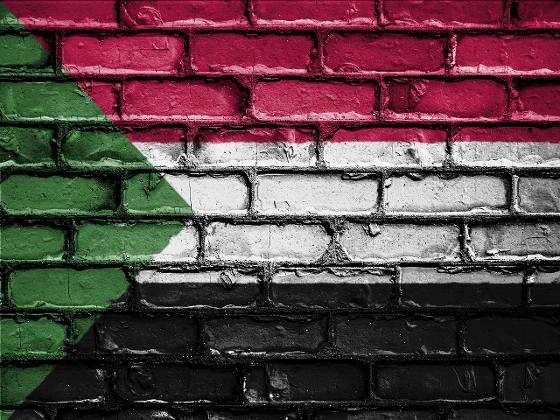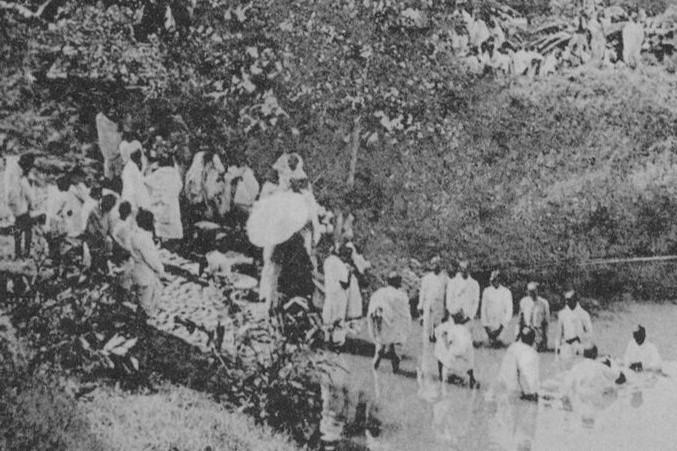The Coup in Sudan: A New Dawn or Musical Chairs?
CPS is happy to publish this up-ed on the coup in Sudan, written by our colleague Marc Lanteigne from political science, ISV
 The events this week in Sudan were the culmination of months of protests against the almost-thirty year regime of President Omar Al-Bashir, who according to reports was forced to resign by the Sudanese military and now faces an uncertain fate. The same can be said for Sudan itself, which has endured decades of trauma, conflicts, and internal ostracism, as well as the violent separation of South Sudan into a separate country in 2011. This crisis presents a challenge not only for Sudan and the surrounding region but also for Norway, which has been a leading actor in the Sudanese peace process for many years.
The events this week in Sudan were the culmination of months of protests against the almost-thirty year regime of President Omar Al-Bashir, who according to reports was forced to resign by the Sudanese military and now faces an uncertain fate. The same can be said for Sudan itself, which has endured decades of trauma, conflicts, and internal ostracism, as well as the violent separation of South Sudan into a separate country in 2011. This crisis presents a challenge not only for Sudan and the surrounding region but also for Norway, which has been a leading actor in the Sudanese peace process for many years. Information remains sparse, but according to a statement by the Sudanese Armed Forces, President Al-Bashir had ‘stepped down’, was placed under arrest, and would be replaced by a provisional military council, led by General Ahmed Awad Ibn Auf, the country’s defence minister, for at least two years, but that new elections would also be planned at the end of that period. The state of emergency in Sudan, which was originally declared by Mr Al-Bashir in February of this year in the wake of the economic protests against his regime, would be extended for another three months, and the country’s most recent constitution, drafted in 2005, would be suspended. In all, these announcements are unlikely to silence the protests, given longstanding grievances not only against the deteriorating economic conditions in the country but also against Sudan’s long period of authoritarianism. Along with pro-democracy protests in Algeria this month and the possibility of an attack on the Libyan capital of Tripoli by advancing forces with the opposition Libyan National Army, there is the possibility that a second wave of the so-called post-2010 ‘Arab Spring’ movement may be in the works.
The most recent round of unrest in Sudan began in late December 2018 after protests in the city of Atbara over hikes in bread prices, as well as the removal of fuel subsidies, snowballed into national calls for the resignation of the Al-Bashir government. Sympathy protests calling for Mr Al-Bashir to step down also took place in American and European cities, while the government responded by shutting down internet accessing and blocking social media, along with electricity and water stoppages, in order to prevent the demonstrations from spreading. These efforts proved unsuccessful in curbing popular anger against the regime.
Mr Al-Bashir had seized power in 1989 also as a result of a coup, and became an international pariah in the wake of both his conduct in the country’s civil war which had originally begun in 1983 and ended with the independence of South Sudan, (although relations between the two states remain uneasy, and there remains a border dispute in the contested Abyei region), as well as the conflict in the Darfur region of western Sudan which has been active since 2003. It was the now ex-president’s conduct during that conflict which resulted in an arrest warrant being first issued by the International Criminal Court (ICC) against Mr Bashir in 2009 on charges of crimes against humanity, including genocide. It remains unclear whether Mr Bashir’s ouster will result in him finally being sent to The Hague to answer to these charges, the new military council had initially stated that there were no plans to deliver Mr Al-Bashir to the ICC.
The events in Sudan have presented a challenge for Norway, which maintains an embassy in Khartoum and is one of the members of the ‘troika’, along with the United States and Great Britain, which had been calling for end to government violence against the protests and a peaceful political transition in the country. The troika members also offered their assistance in supporting government reforms and assisting in the recovery of the Sudanese economy, which had been hit hard by the loss of oil revenue in the wake of South Sudan’s independence as well as US-led sanctions. The troika had begun to coalesce after 2002, and has reflected Norwegian ‘small state’ interests in assisting with a lasting peace in Sudan, and later South Sudan. A small detachment of Norwegian personnel is attached to the UN peacekeeping mission in South Sudan.
Early signs suggest that the protests will continue despite the change in government, with opposition groups, including a trade union coalition, the Sudanese Professionals Association (SPA) calling for a formal transition to a civil provisional body. Some protestors in Khartoum, upon hearing about the specifics of the military coup, began to chant ‘fall again!’ to the uncertain new administration, and by the end of the week it appeared that the demonstrators had succeeded in convincing the military council to change its leader. It was announced on 13 April that General Ibn Auf would be replaced by a more moderate figure, Lieutenant-General Abdel Fattah Burhan, but this second change in government also did not assuage critics who continue to demand a transition to a civilian administration as swiftly as possible.


